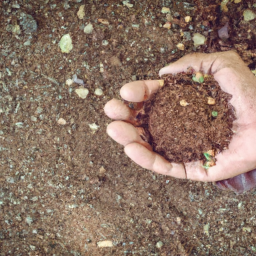Gardening The Environment A Positive Impact
How Gardening Helps The Environment
How Gardening Helps The Environment
Environmental Benefits
Organic gardening is one of the most beneficial activities that help to maintain the environment and protect it from polluting chemicals and toxic substances. The practice of organic gardening helps to combat soil erosion, promote water retention, improve biodiversity, and reduce the use of harmful chemicals. Growing your own vegetables means that you have no need for pesticides or artificial fertilizers, both of which are hazardous to the environment.
Promoting Biodiversity
Organic gardening may seem like a small practice, but it has far-reaching implications in preserving and creating biodiversity. By planting and maintaining organic gardens, gardeners are providing habitats for a range of beneficial insects, birds, and other wildlife. This helps to maintain the natural balance of our environment by creating a refuge for these species so they can thrive in the gardens.
Reducing Chemicals
Organic gardens serve as a natural barrier to pollutants that can leach into groundwater and disrupt the delicate ecosystems of the area. By growing organic food, gardeners not only are avoiding the use of synthetic chemicals, but also providing a natural resource to deter pollution from entering the environment.
Economic Benefits
Organic gardening also has economic benefits. By growing their own food, gardeners are saving money on groceries and providing for themselves in an eco-friendly way. Additionally, organic gardeners may be able to sell their crops for an increased profit, allowing them to make a sustainable income.
Supporting Local Farmers
Organic gardening is also beneficial to local farmers who may not have access to traditional methods of farming. By providing organic crops for purchase, these small-scale farmers can make ends meet and support their families. Additionally, because organic methods are often more sustainable and cost-effective than traditional methods, it is become increasingly popular with farmers.
Sustainable Practices
Organic gardening can also play a role in ensuring sustainable practices when it comes to food production. By eliminating the use of toxic chemical pesticides and fertilizers, organic gardeners are helping to protect water supplies from contamination and promoting sustainable practices.
Social Benefits
Organic gardening also has social benefits as it educates people about sustainability and resource management. By teaching people where food comes from and how it is produced, organic gardening can be a powerful tool in educating the community and promoting meaningful connections between people and their food source.
Connection to Nature
Organic gardening also has psychological benefits, as it allows people to connect more deeply to the natural environment. Gardening can provide an opportunity to interact with nature and to appreciate the fragility of our environment. This connection can build a sense of responsibility and stewardship of the environment by allowing people to understand the role of nature in their lives.
Health Benefits
Organic gardening is also beneficial to individual health. Eating foods that were grown in an organic environment can provide essential vitamins and minerals that are not found in processed foods or heavily processed alternatives. Additionally, spending time in a garden can be calming and provide stress-relief from everyday life.
Insights
Organic gardening is a rewarding and beneficial activity that has far-reaching implications for the environment, economics, and social life. Organic gardening can reduce the use of harmful chemicals, promote sustainable practices, and build meaningful connections with nature. It is an activity that has beneficial aspects for the individual as well as the wider community.

Previous Page
Next Page
